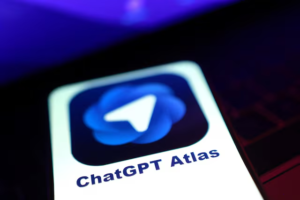A mid-night raid by U.S. Border Patrol agents at a South Side apartment building this week involved agents rappelling from Black Hawk helicopters onto buildings and using explosive charges to blast open doors, in an operation that has raised controversy over the militarized tactics used in an urban immigration enforcement operation.
The raid, the authorities said, was focused on suspected members of the Venezuelan gang Tren de Aragua, and netted dozens to be arrested but also swept up U.S. citizens and families, leading to claims of traumatizing and heavy-handed tactics.
“My Son Was Traumatized”: Residents Describe the Raid
Naudelys, 19-year-old Venezuelan asylum seeker, remembered a traumatic ordeal that began when agents broke her door early Tuesday morning. She was at home with another couple and a baby and her 4-year-old son.
They told us to raise our hands and they pointed guns at us,” Naudelys, who asked her last name not be used for her safety, said. She explained she attempted to video the incident, but an agent pushed her phone aside.
She testified that Spanish-speaking officers told them to “go back to your country,” made a sexual comment about women from Venezuela, and slapped a man in front of her young son. “My son was traumatized,” she said, adding that her husband had been detained by immigration officials three months prior.
When she and her son were later released in the middle of the day as part of her exemplary asylum case, she found her apartment boarded up and her belongings removed.
Similar experiences were reported by others. One unidentified resident clarified that he was forced onto his back and pinned there with zip-ties. Hallways of buildings were lined with garbage days later, a physical reminder of the violent invasion.
A New Urban Mission for the Border Patrol

The show of force represents a new shift in immigration enforcement under President Donald Trump. While border apprehensions hit historic lows, the administration is retooling Border Patrol agents—who historically patrol the nation’s borders by land—to use them as an interior surge force, specifically in Democratic-held cities like Chicago that bar coordination with federal immigration efforts.
The raid, which was one of the Trump administration’s “Operation Midway Blitz” initiatives deployed in the last month, was commanded by Gregory Bovino, the agency’s commander-at-large. Bovino had been a lightning rod for controversy for his loud social media presence, where he has made a habit of posting arrest videos. Last month, he posted on X: “We are here, Chicago, and we are not going anywhere.”
A DHS spokesperson confirmed that the operation was conducted in coordination with the FBI and the ATF. He added that it was aimed against the Tren de Aragua gang, which the United States has designated as a terror organization, and saw 37 illegal immigrant arrestations.
The spokesman would not say whether agents had judicial warrants for the forced entries, citing “sensitivities” surrounding the terrorist designation. “This operation was done in full compliance with the law,” the spokesman said.
Children Separated and a Community on Edge

DHS confirmed that four of the U.S.-born children were taken from their parents during the raid since the parents were not legal. The department accused one of the parents of being a gang member. “These children were taken into custody until they could be placed in the care of a safe guardian or the state,” the spokesman said.
The raid has elicited withering criticism from local politicians and policing experts. Illinois Governor J.B. Pritzker, a Democrat, was particularly scathing, referring to the deployment as “authoritarianism.”

Former Customs and Border Protection Commissioner’s office staffer between 2014 and 2017, Gil Kerlikowske was concerned. “Policing an urban environment is totally, completely different” from border patrolling, he said, cautioning that such aggressive tactics would severely erode community trust.
Meanwhile, a few veteran Chicagoans who lived with the Venezuelan neighbors empathized with them. Cassandra Murray, a 55-year-old building resident, told NBC Chicago that the Venezuelan families who came in about two years ago “never made us feel insecure.” She went on, “They needed a place to live, too.”
The incident brings into focus the widening political battle over immigration and the increasingly visible role of federal border agents in metropolitan America, raising deep questions about the balance between enforcement and public safety.




